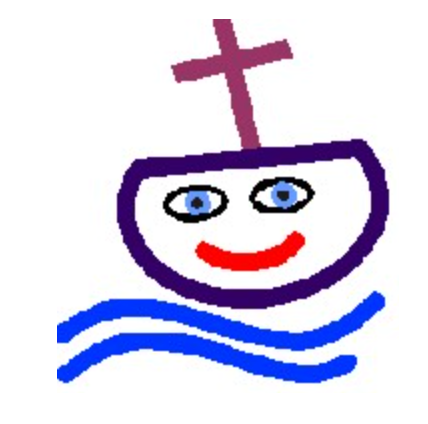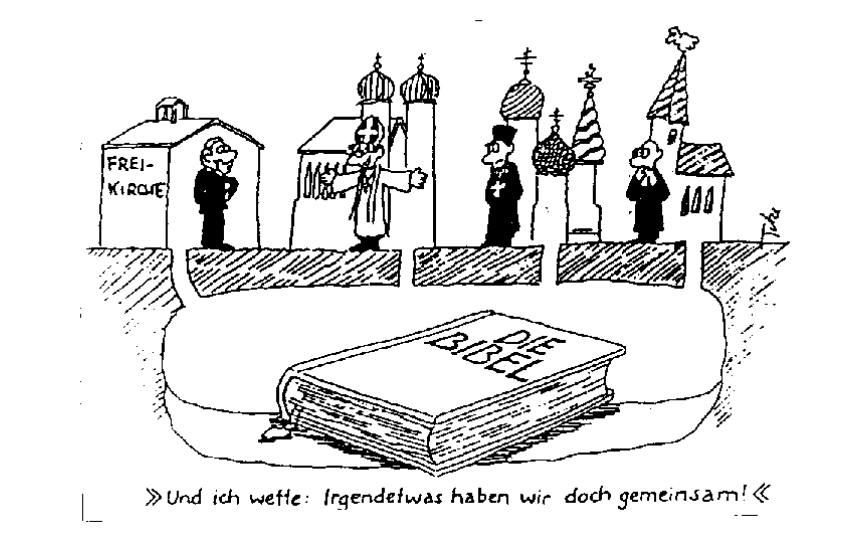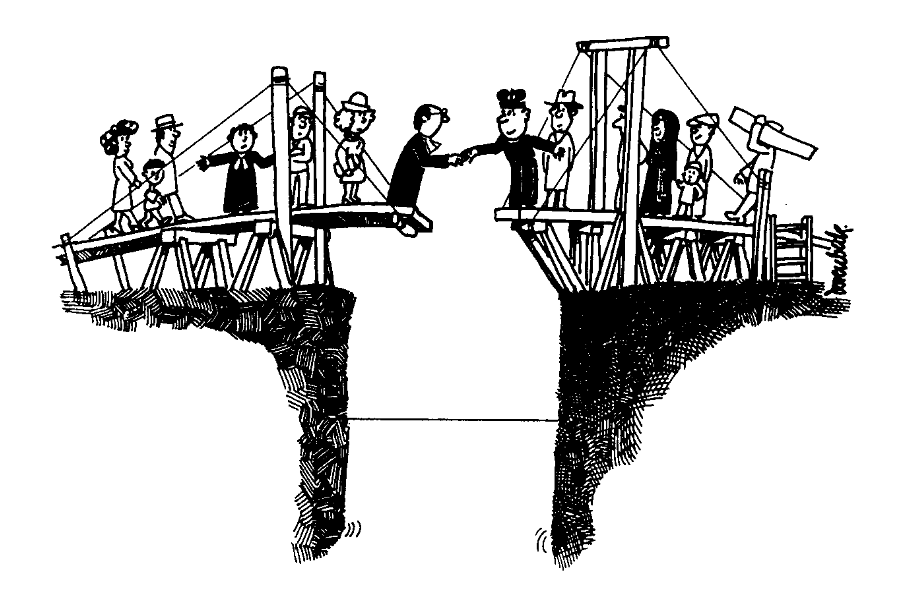ARGE ÖKUMENE Österreich
ARGE ÖKUMENE Österreich
The Austrian Ecumenical Working-Group
(A short introduction)

Our ecumenical working-group developed from small basis-groups in several Austrian federal states. Some "interchurch families" – especially in Vienna, Salzburg and the Tyrol - wanted to share their hopes and sorrows and looked out for others in similar situations. 80 % of our population are Roman Catholic and only 6 % belong to the Protestant Church, but some regions of Austria are really "bi-confessional", and the Lutherans hold even the majority in some towns. So for the minority it happens very often that they meet someone from another confession and if they fall in love – there is one more "mixed-marriage"…
Some of these couples – first only meeting at a local basis - got connected (we think it was by help of the Holy Spirit!) and in 1992 the "Austrian Ecumenical Work Group" was founded by these "confession-tying families", as we call ourselves.
Our annual meetings take place on diocesan level and thus we toured through almost all our federal states: we invited the local Roman Catholic bishop and the Dean of the Protestant Church and we informed them about our aims and visions. Of course, we discuss special facts which influence our lives and so the annual meetings turned out as a "source of energy" for mutual encouragement!

"And I’ll bet: we’ve got something in common!"
Our self image: The Austrian Ecumenical Work Group is a community of couples "combining" two confessions, of families and other people who are concerned and affected by the situation (that they are committed to living within two church communities)
We meet regularly in smaller groups on a local basis; but we stay connected within Austria: we share our experiences, discuss ecumenical questions, celebrate and minister to strengthen our community.
On national level we meet annually and try to be a part of the international AIF-network: Members of AIF-England and the new German network already joined our meetings. We also sent written information to the French community "Foyers mixtes".
We look after our common interests and try to introduce our ideas to church administration.
Open for talks we want to achieve that new theological knowledge (e.g. the "Joint Declaration On The Doctrine Of Justification") gets converted into pastoral care.
We want to raise awareness for the enriching experiences we made on our path through life as well as for the difficulties we were faced with.
We do not want to create a new confession – but want to live in "reconciled variety"!
Our target group: couples of all ages, living in an interchurch situation
all people, who are interested in ecumenical questions and ecumenical progress.
Our visions:
We have the vision that our churches will accept each other as equal "sister-churches", meeting in care and esteem
We have the vision that our churches will realize the difference as a value: the meaning of difference will then change from separation to completion
We have the vision that our experiences of eucharistic sharing effect on reconciliation
We have the vision that Christianity will whet the world’s appetite for the Gospel by living the "reconciled variety"
„If we live what unites us, things that may separate us haven’t the power to separate us!"
This is one of the promising findings we made in the last decade and which encourages our lives.
The themes of our annual meetings (last weekend of October):
- 1992 "The written law brings death, but the spirit gives life" (2 Cor 3,6)
- 1993 Church service
- 1994 Growing in faith together
- 1995 The mutual living in church
- 1996 What do we know from each other?
- 1997 Are we "one" church?
- 1998 Without visions?
- 1999 Two churches – one path to salvation?
- 2000 Sin, Forgiveness and Redemption
- 2001 Marriage – a sacrament?

The following article has been written by Peter PAWLOWSKY; before he retired, he was the head of the department for religion at the Austrian Broadcasting Corporation. After our invitation for our Catholic educational establishment in Bad Ischl (he spoke about "Religion after the turn of an era") he sent me this article. I’m allowed to pass it on and it expresses some of my thoughts exactly how I feel:
The protestant in me – the catholic in you
There are various categories of questions. Some can be answered, others have to be put differently. The question that lies behind the title of these lines belongs to the second category. It reminds me of the pointless argument about female character traits in men and male ones in women. These classifications are based on an empirical short-circuit, they are scientifically not sound. First of all one looks at what statistics say about the way most men or women behave, then one defines the result as typically male or female behaviour and those people who do not fit into the statistic categories have to grapple with unfeminine or unmasculine character traits.
So what is protestant or catholic? The brotherhood of theologians have worked on this distinction for more than 400 years; a distinction which is very useful for the continued division of Christianity. Bad luck for them that the denominations increasingly mix, that insulated denominational environments trend to vanish, so that the distinctions made by the theologians become more and more incomprehensible.
Certainly, there are some things that catch the eye: here synods, there a hierarchical structure led by the pope; here married clergymen or even women priests, there men who live in celibacy, here an understanding of authority without any ties to an apostolic succession demanded there; here the possibility of divorce and re-marriage, there a complete rejection of these propositions.
But many catholics long for the things that protestants have and not only those catholics who initiated the so-called "Kirchenvolksbegehren" (a petition for a referendum within the catholic church). And I know protestants who envy catholics for the publicity of the pope and who would love to have bishops with a presence like their catholic counterparts. Both models cannot prevent more and more people from leaving the church.
In the 16th century a large majority in Austria was protestant and was converted to the catholic faith by force. The result was a strange division: the catholic institutions and their hierarchy are recognized but the question if someone really believes in the faith seems to be an intimate secret. It is not so easy to free oneself from this historical conditioning.
I believe an Austrian protestant differs more from one living in the northern parts of Germany than from an Austrian catholic. And while the pope at least called Luther "a father of faith" Austrian protestants worship the enlightened catholic Joseph II like their second saint. (NB: under his regency 700 of 2000 monasteries had to be closed down!)
There is no way of unravelling the mixture of catholic and protestant in a catholic country like Austria. Denominations are mostly inherited or result from an accidental meeting with a credible community here or there. The differences are varieties of cultural conditions which consist of a catholic general weather situation with constant protestant breezes. This is the weather that surrounds me. I wish for more participation in the church, less craving for power of the hierarchs, a different treatment of women and people who have re-married – and I consider these to be very much catholic demands.
Very much to the displeasure of "ecumenical theologians" of all sides who meticulously work on the questions they put in the wrong way, the central distinctions are quite different today. What does it mean today to believe or not to believe, to orientate oneself by Christ or Mohammed or Buddha, to lead a life according to the Gospel or not? Believers in the faith who have decided these questions for themselves may be protestants or catholics – that doesn’t matter to me. I would like to form community with people like these, do theological research, have discussions. But certainly not about the question, what is catholic or protestant in them!

